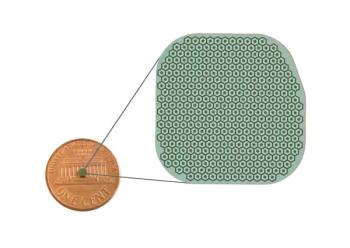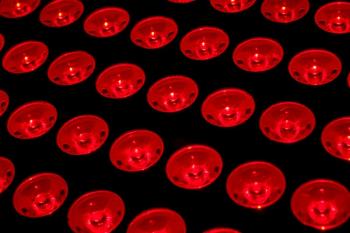
Bepotastine besilate 1.5% B.I.D. well tolerated by chlidren, study shows
Bepotastine besilate ophthalmic solution 1.5% is safe and well-tolerated in healthy children as young as 3 years of age, according to results from a new study.
Data from the study investigating ocular comfort and safety of bepotastine besilate in normal subjects were summarized in a poster presented at the 2009 annual meeting of the American College of Clinical Pharmacy. Eugene E. Protzko, MD, was an investigator and the lead author of the poster.
The 6-week study included 861 pediatric and adult patients ages 3 years and older who were randomly assigned 2:1 to twice-daily treatment with bepotastine besilate or placebo. Daily dosing diaries were used to monitor compliance, ocular comfort was evaluated by self-rating performed immediately after and 5 minutes post-instillation of the study medication at two in-office follow-up visits (1 week and 3 weeks post-randomization), and safety was determined by findings at slit-lamp examination 15 minutes after drop instillation and review of reported adverse events.
In addition, the frequency and type of adverse events were similar in the two treatment groups, and there were no severe or serious adverse events recorded in the pediatric or adult populations during the course of the study.
"Bepotastine besilate is a newer ocular anti-allergy agent with multimodal mechanisms of action, including potent and selective H1 receptor inhibition, mast cell stabilization, and inhibition of eosinophil migration," said Dr. Protzko, a private practitioner in Bel Air, MD. "Efficacy of any agent used to control seasonal allergic conjunctivitis depends on patient compliance and tolerability.
"Bepotastine facilitates ongoing usage because it has a relatively simple twice-daily dosing schedule, is comfortable on instillation, and has a good safety profile," Dr. Protzko said.
Of the 575 patients assigned to bepotastine, 47 were ages 3 to 9 years (mean age 5.7 years) and 40 were ages 10 to 17 years (mean age 12.8 years). The overall study population was composed predominantly of Caucasians, and there was a slight majority of males. Only one of 87 children assigned to bepotastine withdrew from the study, but the reason was unrelated to medication use.
Newsletter
Want more insights like this? Subscribe to Optometry Times and get clinical pearls and practice tips delivered straight to your inbox.



























